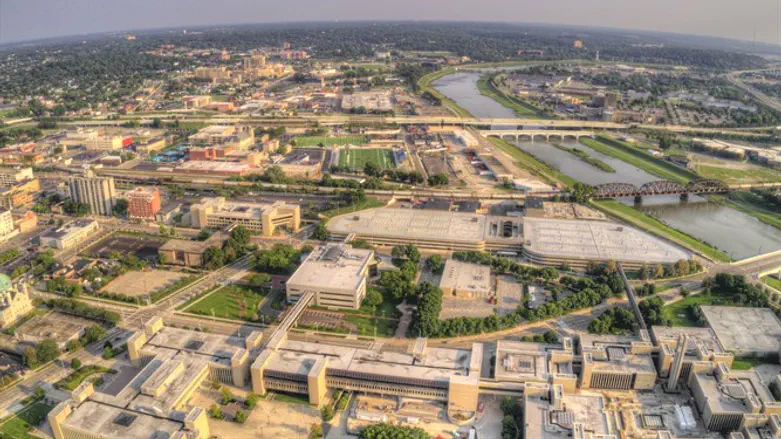
A long-running dispute over whether a house in suburban Cleveland, Ohio can be used as a synagogue may have come to a temporary halt as an agreement was reached allowing the Aleksander Shul in University Heights to be open for Shabbat and High Holy Days, however the Orthodox synagogue and its lawyer are not backing down from what they say is unfair treatment.
“This case is not about public safety,” wrote lawyer Dale H. Markowitz in a July 29 legal briefing in Cuyahoga County Court of Common Pleas, where the city has gone to plead its case that the house should be permanently barred from being used as a synagogue, reported the Cleveland Jewish News.
“This case is about a mayor, in an election year… adopting a new discriminatory policy to cater to a vocal constituency that does not want to live near Orthodox Jews. … This new policy specifically targets Orthodox Jews in general and the Aleksander Shul in particular and violates the United States and Ohio Constitutions, as well as provisions of the Religious Land Use and Institutionalized Person Act. … There is no justification to shut down the 10-year-long exercise of religion at the shul, which has harmed no one and presents no present threat,” he wrote.
The brief was filed against the city’s motion to permanently prevent the Aleksander Shul from using the house at 4380 University Parkway.
At a June 21 city council meeting, University Heights Mayor Dylan Brennan said he would get the synagogue shut down for violations of city’s codes and ordinances. The city proceeded to file criminal and civil charges against the synagogue, its rabbi and downer. They were subsequently hit with a $65,000 fine for violating building codes.
Brennan defended his actions to the Jewish News in an August 2 statement, saying that he had worked with various Orthodox Jewish community groups on creating new facilities for the community and accused Aleksander Shul of wasting “time and opportunities to work with the city… and pass[ing] on opportunities to buy land when it was made available.”
He also claimed his attempts to work with Aleksander Shul were not reciprocated, while accusing the synagogue of making the dispute “personal and nasty.”
He alleged that the synagogue had “descended into name calling, distorted my words from a court-sanctioned settlement meeting, and filed false affidavits accusing me of racism and anti-Semitism… The community cannot condone their shameful bad faith tactics.”
Markowtiz said in his brief that the synagogue “remains the only place in Ohio that offers communal Chasidic prayer services.”
He also alleged that Brennan attempted to confine Orthodox Jews to a certain section of the city.
“So long as the Orthodox Jews remained within the confines of the ‘Green Road Ghetto’ the Aleksander Shul was permitted to operate,” Markowitz said. When the community expanded to the center of town, Markowitz said Brennan began “discriminatory action to confine any attempts at Jewish prayer group to the perimeter of town to maintain the ‘Green Road Ghetto.’”
He explained that in 2019, the synagogue had applied for a special-use permit and found the city to be helpful initially. Not long after, previously cordial relations between the synagogue, the city and the mayor fell apart.
The case may end up in a federal court, said Markowitz in an interview with the Jewish News.
He noted that the Ohio Supreme court has “given churches and synagogues the right to be in the community that they serve, and that is really important to Orthodox communities because, as you know, they walk to shul on weekends and High Holy Days and they need to be able to live near where they pray. And the Supreme Court of Ohio has made that clear time after time that you have to allow that.”
The civil case is scheduled to resume on October 1.
